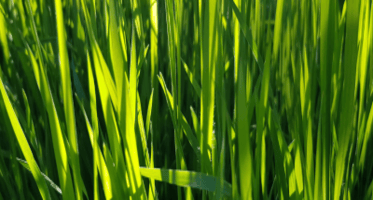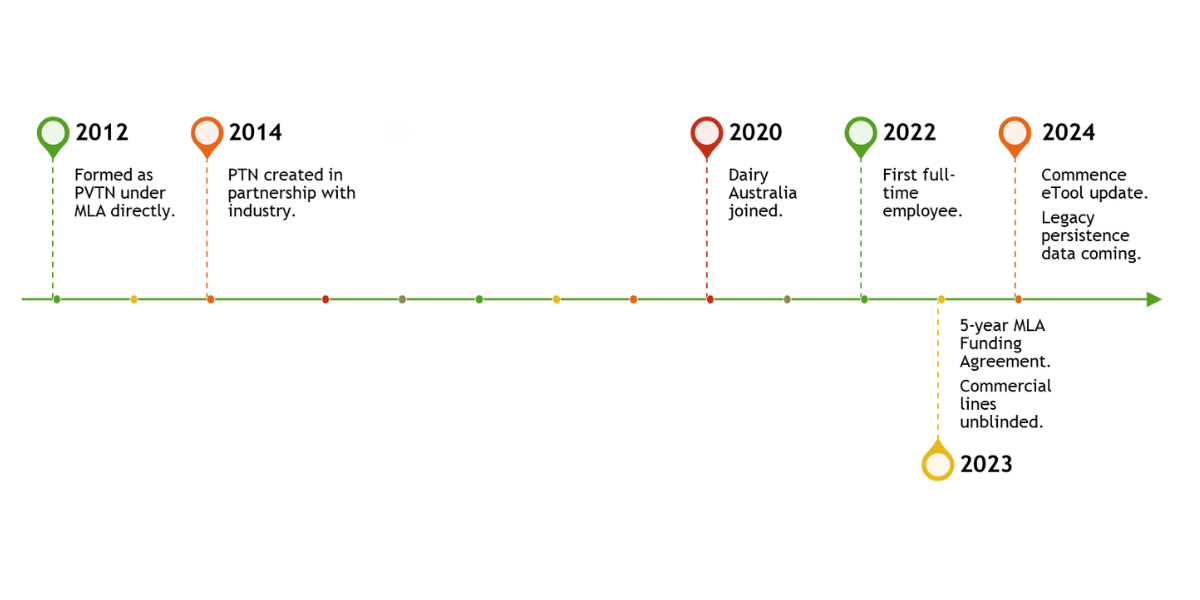About
What we do

About PTN
The Pasture Trials Network (PTN) offers independent, robust grazing forage/feedbase variety performance information.

Vision, Purpose and Values
To deliver independent, robust, forage variety trials. Providing free to access data enabling producers to take the guess work out of pasture selection.

Membership
The PTN is an expanding network of partner seed companies and independent trial contractors located across temperate Australia.
How we work
The Pasture Trials Network (PTN) offers independent, robust grazing forage/feedbase variety performance information.
PTN data is gathered through a network of trials across temperate Australia using an industry-developed trials protocol. PTN has been running various pasture variety trials with over a decade of data available. Continual active trials across the country; data is continually reviewed by a panel, with approved trials uploaded to the MLA PTN eTool every few months. Active trials are continually being conducted across the nation, with data regularly reviewed by a dedicated panel, with approved completed trials making their way to the MLA PTN eTool every few months.
PTN data and trial report information is free to all, with no cost to access information.
Since the programs’ inception, over 100 trials have been listed on the MLA PTN eTool covering eight major pasture species: annual, Italian and perennial ryegrass, cocksfoot, tall fescue, lucerne, sub-clover and chicory, with the dataset to continue to expand in species and regions.
The PTN is a partnership between Dairy Australia (DA), Meat and Livestock Australia (MLA) and leading Australian seed companies (see below) and the Australin Seed Federation that supports livestock producers, advisors, and supply chain stakeholders to improve awareness and uptake of advanced temperate pasture varieties.
PTN is an industry-operated program consisting of industry panels overseeing governance, technical and communication activities, and technical and communication activities, consisting of funding partners and industry stakeholders, with the PTN Executive Officer coordinating business, stakeholders and trial partners and leading day-to-day technical advisory.
Using a series of trial cooperators from regions of interest as identified by the technical panel, the program delivers a series of variety MERIT (Monitoring, Evaluation, Reporting, Improvement Tool) trials across numerous species. Trial periods range from less than one year for annual ryegrass varieties to three years or beyond for perennial species (perennial ryegrass, cocksfoot, lucerne, etc.). All data is periodically reviewed by the technical panel for the agronomy and scientific process, with completed trial data independently analysed and uploaded to the PTN eTool.
The Pasture Trials Network board is comprised of directors from each major seed company, remaining seed companies, funding RDC, Australian Seed Federation and independent directors as required. The current board of the Pasture Trials Network includes:
- Katherine Delbridge (chair) | Australian Seed Federation
- Tony Butler (company secretary) | Pasture Trials Network
- Jason Agars | DLF Seeds
- Tom Dickson | Barenbrug
- Richard Prusa | RAGT
- Craig Altmann | AGF Seeds
- Tim Pepper | Independent
- John Penry | Dairy Australia
How the program has developed?
| 2011 | A pilot Pasture Variety Trials Network (PVTN) scheme was set up. |
| 2012 | PVTN became a formal program funded by Meat and Livestock Australia (MLA). |
| 2014 | Independently coordinated Pasture Trial Network (PTN) was established in 2014 as a joint venture between MLA, the Australian Seed Federation (ASF), and ten participating seed companies. |
| 2020 | Dairy Australia also became a program funder, using relevant trial data to generate Dairy Australia’s Forage Value Index (FVI). |
| 2024 | The program expanded new species with the PTN eTool upgraded. |
| 2025 | The development of pasture hub trial locations, introducing with planning for 2026 and beyond as well further expansion of grazing cereals. |



